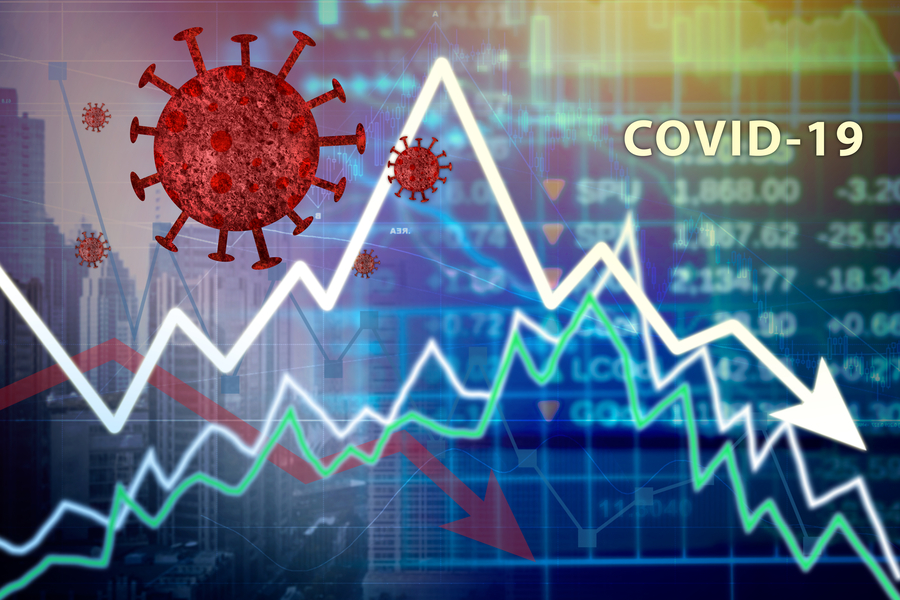I WANT
RELATED LINKS
I WANT
RELATED LINKS
RELATES LINKS
I WANT
RELATES LINKS
Services
Related Links
Use and Management of Cookies
We use cookies and other similar technologies on our website to enhance your browsing experience. For more information, please visit our Cookies Notice.
- Personal Banking
- Stories & Tips
- Grow Your Wealth
- How to choose to invest in the New Normal era for the money to grow
- Personal Banking
- ...
- How to choose to invest in the New Normal era for the money to grow
How to choose to invest in the New Normal era for the money to grow
25-09-2020
The global recession due to the outbreak of the COVID-19 virus has caused stock markets to be affected and volatile. Until New Normal investors must look back and study the past crises. To assess the situation from now on, what factors must be faced.
JP Morgan Asset Management analyzes the reasons for the US stock market downturn. For example, if the stock market index fell more than 20% from its 52-week (or 1-year) high, it was found that during a bear market there would be a risk factor. Factor) occurs together in at least 2 of the 4 main factors: Bear Market.

1. Recession
Is the economic recession. The initial observations in assessing that the economy started to recession include economic growth (GDP) was negative for 2 consecutive quarters, such as GDP in Q1 - negative 1% and Q2 - negative 0.5%.
It should also be noted that economic activity has declined for several consecutive months, such as investment, production capacity, consumption. Import and export at the same time, the unemployment rate has increased.
2 .Extreme Valuations
Is a condition in which stocks are highly inflated and result in market volatility. In the past, the stock market was bullish. (Before the stock market drops) One of the key factors is that investors buy stocks at higher valuation levels, noticeable from the rapid increase in P / E Ratio. Which buying more expensive stocks It is not from assessing that the fundamentals of stocks are strong. But caused by the speculation.
3. Commodity Spikes
Is that consumer products have a rapidly rising price Because consumer products are of the same standard around the world. Thus, the price of a product is determined by the supply and demand of the world market. As a result, product prices have changed in the same direction around the world.
Therefore, if there is an unusual situation until the product price rises rapidly as a result, the economy and the stock market were affected as well. For example, during 1973 the Petroleum Exporting Countries (OPEC) canceled oil exports to the United States. As a result, oil prices jumped from $ 3 a barrel to $ 12 a barrel. Increased approximately 300% within a short time. The US stock market, the S&P 500, dropped as much as 40% as investors continued to sell their stocks. To reduce the risk of concerns that the United States will face a shortage of oil. And affect the economic crisis.
4. Aggressive Fed Tightening
is the Federal Reserve (Fed) implementing a more stringent policy. By rapidly raising the policy interest rate to curb inflation. The Fed will take such steps to mitigate the extreme heat of an economy that could expand too quickly that there is a potential for a bubble and a serious impact on the economy. When the policy interest rate increases as a result, the financial costs of listed companies are increasing. Makes it less attractive to invest in stocks. When compared to investing in debt instruments Where the return on interest increases Compared to the dividend yield of stocks (Dividend Yield). Therefore, the trend of interest rates is a factor that affects the stock market.

From that analysis Assess that the key factors that give the stock market a chance to enter a downturn are Economic recession and the condition that the stock has an inflated value.
At this point, the definition that "COVID-19 Recession" or COVID-19 causes economic recession. Would describe the current economic conditions And the Thai stock market is reasonably good. However, investors in the New Normal era must be ready to adjust their investment strategies to generate good long-term returns.
Money management in the New Normal era
Investors are advised to check their financial status first to see what assets they have. How much income - expenses each month? And plan how many months the assets you have can cover your expenses. They should have a reserve for their expenses at least 12 months in advance, because no one can predict that. When will this crisis be resolved? The next thing to do is reduce unnecessary expenses. Make the most of your money and, most importantly, stop creating debt.

How should I invest to grow my money?
1. Planning
Before every investment Investors should clearly plan how much they want to invest. What type of investment Assess the risks that you can accept? With clear investment goals
2. Risk Management
In times of crisis, COVID-19 should invest in a variety of assets. It diversifies risks and creates profitable opportunities.
3. Age and Timing
Age is another factor to consider. Young investors may be more risky than older investors. The ideal proportion of investment risk should be 100 - age, for example, 25 years old, the investment risk ratio is 75%.
In addition, the sooner you start investing the more you are likely to receive more returns.
4. Cut Loss
Investors should specify a cut loss point to clearly see at which level the loss can be accepted. Cut Loss means selling shares at a loss. But to minimize losses Before losing more than present.
It is a sale to limit losses, it gives investors liquidity to reinvest their funds.
5. Discipline
Investment discipline is the key to investing. Whether it is the reason for each investment Maintaining investment proportion in various assets as intended Ongoing investment. Eliminating distraction during market volatility times
It cannot be denied that the COVID-19 crisis affects investments, so investors should adapt their investment strategies to the changing circumstances. For opportunities to generate sustainable returns in the New Normal era
